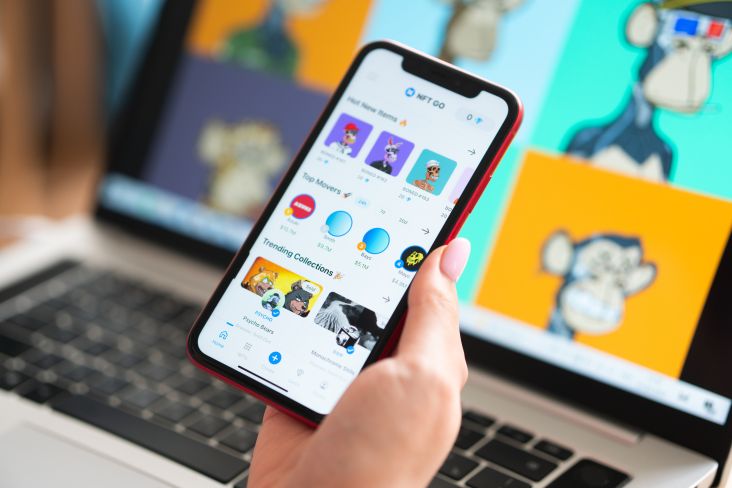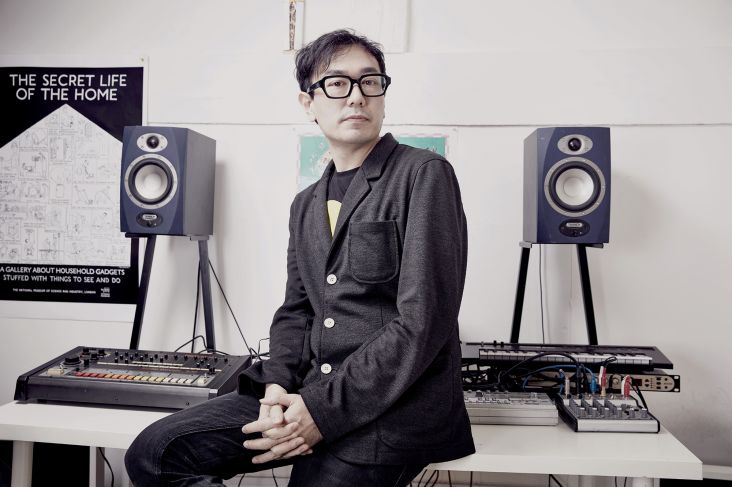Three easy tricks to help you beat imposter syndrome
It's Mental Health Awareness Week again. A chance to consider our well-being and support others who might be suffering. In that spirit, we thought we'd take a closer look at a common issue for creatives, and that's imposter syndrome. In three easy steps, we'll show you how to beat it while sharing excellent advice from the creative community.

Image licensed via Adobe Stock
Imposter syndrome (or 'Imposter Phenomenen') was a term first coined in 1978 by American clinical psychologists Pauline Clance and Suzanne Imes who set out three defining features: a feeling that other people have an inflated perception of your talent; a fear that your true abilities will be "found out", and finally, a tendency to attribute success to external factors, such as luck or timing, or even perhaps fooling others about your intelligence.
It offers some reassurance to learn of the academic take on what is a frequent curse of being a creative professional. If imposter syndrome is stifling your creativity of late, then perhaps the following advice will help. We also asked the creative community to offer their own tips on overcoming those menacing, unwarranted feelings of inadequacy.
Remind yourself that you deserve to be here
It might seem like an obvious starting point, the idea that we should tell ourselves we're worthy, but it's something many of us neglect. "Take a moment to think about how much you've achieved in the last year," says web designer and photographer Mike Hindle. "How much effort you've put in and how much you've learnt. If you're doing better work and working with better clients, then show your imposter syndrome the middle finger, and carry on."
Mike makes an important point, so create a list of achievements – no matter how small – and pin it to your office wall. Look at it frequently and celebrate your wins. Whether you made a client happy, sold your first print or just enjoyed a big milestone like surviving a whole year of freelancing – these are wonderful things that you alone have done. It's not easy.
For extra strength and resolve, follow the advice of communications consultant Lucy Yates nee Wray, who remarks: "I learned it's all about embracing your inner imposter, as essentially it's your brain trying to protect you. Give him or her a name (mine's Jennifer) and thank them for their concerns, but let them know why it's OK to proceed. Positive affirmations and gratitude journals help, too."
You've also got to remember that you worked hard to be here, so shout about your achievements, and celebrate overcoming those hurdles – you aren't showing off, you're acknowledging how far you've come.
Writer Laura Clare Horton says: "When success feels fraudulent and I worry about taking up space, I remember something my aunty said, 'How many times in your life will this opportunity present itself?'. These moments are rare so reframe them with joy. It's not always easy but reminding myself they're finite helps me."
Ignore what others are doing and focus on yourself
What's the point of comparing ourselves to the competition when we are all on our own unique journeys? That's the wisdom from artist and illustrator Murugiah, who adds: "If we just compare our present selves to our past selves, there is no imposter syndrome to worry about."
He's right. Don't focus on the competition: it wastes time and energy. Marketer and copywriter Ben Veal agrees and reminds us of that quote by Theodore Roosevelt: 'Comparison is the thief of joy'. "It's something that I keep in mind daily. If you compare yourself to others, you will never do enough, and you will never be enough. All we can do is aim to be the best versions of ourselves – personally and professionally – that we can be."
"Remember that the people you look up to have usually been doing this for way longer," says German illustrator Gila von Meissner. "They have a head start, and you only see their crowning glories – not the bumbling and beginnings when they were still finding themselves. The way you are now."
To really hit it home, illustrator Daniel Sulzberg adds: "I have a quote on my desk that I've had since high school that reads, 'Create yourself in opposition to no one'. It has been my ongoing mantra and reminds me that I create to make myself and others feel something through my art."
Take action daily to feel in control
You know when you feel a bit out of shape, and you start to exercise and feel better? How the jeans might not yet fit, but you feel fantastic because you're doing something about it? That's one way to tackle imposter syndrome, too. Because if you feel like a fraud, perhaps that's your gut saying you should learn something new or reach out and speak with others. It'll help you feel in control. Take a course. Read a book. Go to a talk. Do something, anything, to build your skills and experience and boost confidence.
And if that doesn't work? "The thing I always try to think is that it's not imposter syndrome; it's just you having high expectations of yourself and not quite managing to live up to that, which is normal," says illustrator Tim Easley. Tim points us to an inspiring quote by Ira Glass, who said: "Nobody tells this to people who are beginners. I wish someone had told me. All of us who do creative work, we get into it because we have good taste. But there is this gap. For the first couple of years, you make stuff; it's just not that good. It's trying to be good, it has potential, but it's not. But your taste, the thing that got you into the game, is still killer. And your taste is why your work disappoints you. A lot of people never get past this phase; they quit. Most people I know who do interesting, creative work went through years of this.
"We know our work doesn't have this special thing that we want it to have. We all go through this. And if you are just starting out or you are still in this phase, you gotta know it's normal, and the most important thing you can do is do a lot of work. Put yourself on a deadline so that every week you will finish one story. It is only by going through a volume of work that you will close that gap, and your work will be as good as your ambitions. And I took longer to figure out how to do this than anyone I've ever met. It's gonna take a while. It's normal to take a while. You've just gotta fight your way through."
One final point, find a community you can trust. People who are on similar paths. And then help each other out. Talking really does make a difference. Particularly when you realise that we are all the same and suffer as much as anyone.
To conclude
It's not easy being a creative professional. Our work is out there for all to see, the industry is buoyant and full of talent, and it often feels like we're all scrambling to the top in a desperate attempt to be successful and survive. When imposter syndrome kicks in, remember:
- You deserve to be here. You are worthy, just like anyone else. You have clients, people love working with you, and you're a success. Remind yourself daily of your achievements. Write a gratitude journal. Pin positive affirmations to your office wall.
- Everyone is on their own path. In which case, comparing yourself to others is a fruitless exercise. That designer over there might be thriving, so it would seem, but we all have different backgrounds, experiences, and talents. Focus instead on your strengths.
- Knowledge is power. If you feel yourself slipping into "beating yourself up" territory, pick up a book, take a course, or attend a talk. Learn new things to boost your experience and build confidence.
- Give yourself a break. We have good days and then we have days when nothing feels right. Don't beat yourself up. You're human. We all go through this. If you didn't doubt yourself sometimes, you wouldn't be learning or growing.
- Find your creative tribe. Sharing stories and talking through common issues, like imposter syndrome, can be incredibly therapeutic. Don't suffer alone. Reach out and find people you can trust to overcome those feelings of inadequacy.
And if all that doesn't work? "None of us completely know what we're doing," says artist Mel Langton. "We're all winging it to a degree, but we do have confidence in our skills and what we can achieve. That's what makes us brave." Also, change your mindset. "I find reframing it helps," says consultant Lucy Mann. "Imposter syndrome sounds like a permanent state. I prefer growing pains. It suggests the feeling occurs as a natural consequence of growth and that there are good things on the other side."

 for Creative Boom](https://www.creativeboom.com/upload/articles/06/063686a9a3b095b9b1f0e95df917ed4bd342be1b_732.jpg)













](https://www.creativeboom.com/upload/articles/c3/c3f221d99b79de33449900e9b796afb9588dfc07_732.jpg)







